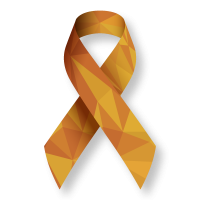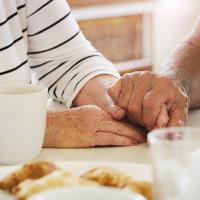
You use your bladder several times each day, but do you know what you should do to keep this organ healthy? Chances are, you don't. To understand how to maintain a healthy bladder, you first need to know the role of your bladder, why it's crucial, the different drinks and foods for bladder health and those you should avoid. So, here's a guide to keeping your bladder healthy.
- What Is the Role of the Bladder
- Why Is the Bladder Important?
- What Is the Anatomy of the Bladder?
- What Can Impact Your Bladder Health?
- What Drinks Are Good for Your Bladder?
- What Foods Are Good for Your Bladder?
- Other Tips To Keep Your Bladder Healthy
What Is the Role of the Bladder?
Your bladder, like your belly, is a saclike, expandable organ that contracts when it becomes empty. When signaled, the muscles of your bladder will release urine through your urethra, which is the tube carrying urine out of your body.
As your bladder stretches, it can increase its size from around two inches to over six inches long, depending on how much liquid fills it. Typically, the average human bladder reaches full capacity when it holds 16 to 24 ounces of urine. However, you start feeling the urge to urinate when your bladder is around a quarter full.

Why Is the Bladder Important?
Your urinary system or bladder is essential because it filters extra fluid and wastes from your bloodstream, removing them from your body. When your kidneys are functioning normally, they:
-
Prevent excess fluid and waste buildup in your body.
-
Produce blood pressure-regulating hormones.
-
Keep your electrolyte levels like phosphates and potassium stable.
-
Keep your bones strong.
-
Produce red blood cells.

Your bladder, urethra and ureters move your urine from your kidneys and then store it until it's time to release it from your body.
What Is the Anatomy of the Bladder?
Your bladder is an extraperitoneal muscular urine reservoir. It sits in your pelvis behind your pubic symphysis — the secondary cartilaginous joint located between your right and left pubic bones near your body's midline. It resembles the size and shape of a pear when it's empty.
When your bladder functions normally, it works through a complex coordination of neurologic, musculoskeletal and psychological functions, allowing the filling and emptying of the contents of your bladder. The synergic contraction of your bladder pelvic and neck floor muscles and relaxation of detrusor muscles is the main effector of continence. This phenomenon occurs when your bladder fills and stores urine.
Your bladder's inner lining tucks into folds, and expands to accommodate liquid. The muscle wall of your bladder becomes thicker when your bladder is empty, and your entire bladder becomes firm. When your ureters fill your bladder, it causes your muscle wall to thin and your bladder to move upward toward your abdominal cavity.
You have a type of muscular valve, known as an internal sphincter, that helps keep urine from leaking out. The base of your bladder is triangular, and prevents your urethra from stretching or backflow into your ureters.
What Can Impact Your Bladder Health?
A number of things can affect the health of your bladder, many that you can control with a lifestyle adjustment, but others you can't. Here's a list of factors that can impact your urinary health, some of which may cause bladder pain and discomfort:
-
Constipation: Constipation causes excess stool buildup in your colon, placing pressure on your bladder and keeping it from expanding as it should.
-
Diabetes: Diabetes can cause damage to the nerves surrounding your bladder that help with bladder control.
-
Low physical activity: Being physically active could help prevent bladder issues as well as constipation. It could also help you maintain a healthy weight.
-
Being overweight: When you're overweight, it increases your risk of leaking urine.
-
Smoking: Bladder issues are more common among individuals who smoke. Smoking also increases your risk of bladder cancer.
-
Some medications: Specific drugs could increase the risk of your bladder leaking urine. For instance, medications intended to calm your nerves so you can relax or sleep could dull your bladder nerves, and you might not experience the urge to urinate.
-
Caffeine: Caffeine could bother your bladder, changing how your bladder informs you when it's time to urinate.
-
Alcohol: Consuming alcohol could make your bladder issues worse.
-
Diet: Bladder problems can worsen due to certain foods such as artificial sweeteners, sodas, citrus, spicy foods and tomato-based foods. If you have problems with your bladder, you might feel better when you don't consume these foods or beverages.
-
Pelvic injury: Trauma like childbirth or prostate surgery could damage the nerves and muscles that control your bladder.
-
Bladder cancer: This cancer starts when your urinary bladder cells begin growing out of control. As more cancer cells develop and grow, they can form a tumor which can spread to other areas of your body over time. Proper testing and treatment are vital if you suspect bladder cancer.
-
Specific activities: Some activities could increase your risk of a urinary tract infection, including having sex, using a catheter to urinate and using specific kinds of birth control.
What Drinks Are Good for Your Bladder?
When trying to figure out how to keep your urinary system healthy, consider these healthy drinks.
-
Water: You can help prevent incontinence by drinking enough water.
-
Kohli tea: This tea is an extract from a subtropical plant that grows in southern China. It's a sweet tea sold over the counter in Japan for its antioxidant benefits. It also has a protective effect on your bladder. A study on kohli tea found it had a substantial protective effect in rabbits with partial bladder obstruction in terms of contractile responses and bladder function.
-
Cranberry juice: Researchers report cranberry juice could help prevent bacteria from turning into a urinary tract infection within.
-
Pear or apple juice: If you drink fruit juice, switch it to a less acidic juice like pear or apple juice and dilute it with water.
-
Barley water
-
Diluted squash: You can take diluted squash, but try and avoid squash and blackcurrant containing sugar alternatives like saccharin and aspartame, which can irritate the bladder.
-
Fruit and herbal teas: Fruit and herbal teas come in many varieties and are typically free of caffeine. Ginseng, however, can stimulate the bladder and could increase the urgency and frequency of urination.
-
Lemon water: Lemon is vitamin C-rich and a powerful antioxidant that alkalizes your body. It helps hinder bacterial growth. Additionally, it acts like a diuretic agent, flushing harmful toxins out from your urinary tract, helping prevent UTI recurrence.
What Foods Are Good for the Urinary System?
Along with beverages, it's also a good idea to know the foods for a healthy bladder and kidneys. If your bladder is sensitive, there are still foods you can enjoy without irritating it. You already know the foods you should avoid. Here are some bladder-cleansing foods you may want to eat.

-
Pears: Pears are a great source of fiber and usually start to ripen sometime in September or October, depending on where you live.
-
Bananas: You'll find bananas in your local grocery store pretty much all year long. They're perfect for topping cereals, eating as snacks or putting in smoothies.
-
Winter squash: Despite its name, you can find squash year-round as well, particularly in the fall and winter. Squash varieties include butternut, acorn and spaghetti.
-
Green beans: Add a little color to your plate with green beans. Put them in salads, eat them raw or roast them with a bit of olive oil.
-
Potatoes: Both potatoes and sweet potatoes are bladder-friendly foods.
-
Whole grains: Rice, quinoa and oats are whole grains and just a few examples of the many varieties you'll find. They're not typically expensive, either.
-
Lean proteins: Low-fat chicken, pork, turkey, beef and fish are examples of lean proteins. They're not likely to bother your bladder, particularly when you steam, broil or bake them.
-
Nuts: Cashews and peanuts make perfect protein-rich and bladder-healthy snacks.
-
Breads: Bread makes a great addition to any meal and is overall bladder-friendly.
-
Eggs: Eggs are also protein-rich and are among the least bothersome foods to the bladder.
-
Pomegranates: Pomegranates are also rich in vitamin C and antioxidants.
What Are Other Tips to Keep Your Bladder Healthy?
There are many ways to maintain a healthy bladder. Here are some tips you can follow.
1. Practice Doing Kegel Exercises
You can prevent urinary incontinence by strengthening your pelvic floor muscles. You perform Kegels by tightening and releasing your urine-holding muscles. Ask your doctor how often you should perform these exercises.
2. Treat Chronic Conditions
Some conditions that can affect your bladder and you should treat are as follows.

-
Diabetes: When you have uncontrolled diabetes, you could have sugar in your urine, and this can considerably worsen urinary leakage.
-
Vascular disease: This ailment and others can damage the nerves of your bladder.
-
Urinary tract infections: UTIs can cause temporary incontinence episodes due to the bacteria that often invade the bladder, weakening the urethra muscles. A UTI won't trigger incontinence for all individuals, but if you're already incontinence-prone, it can make a difference.
-
Interstitial cystitis: This chronic condition causes bladder pain, bladder pressure and sometimes pelvic discomfort. You can experience pain ranging from being mildly uncomfortable to severe. Interstitial cystitis falls under painful bladder syndrome.
-
Overactive bladder: Overactive bladder causes a sudden urination urge. It can be hard to stop this urge, and you could involuntarily lose some urine. Overactive bladder can cause you to isolate yourself, feel embarrassed and limit your social and work life. You can take medications and perform behavioral strategies — such as timed voiding, fluid schedules and bladder-holding techniques — to help.
-
Urinary incontinence: Urinary incontinence is bladder control loss. You may experience only mild leaking or uncontrollable wetting. Anyone can suffer from urinary incontinence, but it's more common with age. Most problems with bladder control occur when your muscles are too active or too weak. If the muscles that keep your bladder closed become weak, you could have accidents when you laugh, sneeze or lift heavy objects. If they're too active, you might only have a little amount of urine in your bladder, but still have a strong urge to go. Incontinence can occur for other reasons as well, like nerve damage and prostate problems.
-
Bladder cancer: This cancer occurs in your bladder lining. You may experience a frequent urge to urinate, blood in your urine, low back pain or painful urination. Smoking and exposure to some workplace chemicals are risk factors for developing bladder cancer.
3. Practice a Healthy Diet
Specific foods can cause urinary incontinence, including acidic fruits such as grapefruit or oranges, chocolate, sugary treats or spicy foods. These all can irritate the bladder. If you're experiencing bladder problems or urinary incontinence, first try to remove these types of foods from your diet and see if there's any change. Then, slowly add them back into your diet to see how they affect your body.
4. Get Testing
Being tested for bladder cancer is essential for anyone who has the symptom of blood in their urine (hematuria).
5. Avoid Being Constipated
The rectum and bladder are close to each other. If you're not regularly emptying your bowels, they can place pressure on your bladder, causing incontinence. Drinking enough water and consuming a healthy fiber-rich diet can help with constipation.

6. Maintain a Healthy Weight
There are numerous health problems linked with being overweight, including urinary incontinence. The more overweight you are, the more pressure you place on your pelvic floor muscles that keep urine in your bladder. Urine can start leaking from your bladder when your pelvic floor muscles weaken.
7. Practice Good Personal Hygiene
Keep things dry and clean down there. Don't clean too much, however. You'll want to avoid harsh soaps which can kill regular healthy bacteria.
8. Avoid Fizzy Drinks, Caffeine and Alcohol
If you're prone to incontinence, you should probably stick with drinking water. Caffeinated beverages like coffee, alcohol and sodas with artificial sweeteners or sugar can all irritate your bladder and could lead to urinary leakage.

9. Quit Smoking
If you smoke, stop. Smoking can lead to urinary incontinence, and those who do smoke increase their risk. While researchers aren't entirely sure why this occurs, they believe it has something to do with the way nicotine interacts with your bladder. Smokers often suffer from chronic cough, which can cause bladder leakage.
10. Practice Good Urinating Techniques
Take the time to empty your bladder completely when you urinate. If you rush, you're not allowing your bladder to empty itself fully. If urine remains in your bladder for too long, it can cause a bladder infection.
When urinating, stay in a relaxed position. Relaxing your bladder muscles will make it simpler to empty your bladder. Women should sit on the toilet seat rather than hover over it, since hovering will make it difficult to relax. If you're in a public place and you don't want to sit on the toilet seat, you can line it with toilet paper. Many bathrooms also have paper toilet seat covers you can use.

After going to the bathroom, wipe from front to back, especially after a bowel movement. Wiping back to front can cause bacteria to enter the urethra in women.
Urinate immediately after sex to flush out bacteria that could have entered the urethra.
11. Take It Easy on Salt
Salt makes you retain water, and too much of it can throw your kidney's water/salt/mineral balance off-kilter. A diet high in sodium can elevate blood pressure, and uncontrolled, long-term high blood pressure can cause kidney damage. A diet high in salt can also contribute to kidney stone development. The development of calcium stones might be due to consuming too much calcium. However, sodium can cause the kidneys to excrete more salt.
Watch the sodium labels on processed foods. Reduce intake of canned vegetables and soups, hot dogs, luncheon meats and sausages.
12. Wear Cotton Underwear
Wear loose cotton underwear to allow air to keep your urethra area dry. Nylon underwear and tight-fitting jeans can trap moisture, leading to bacteria growth.

Browse Our Blog For More Articles on Bladder Health and Bladder Cancer
We hope you've found this article useful. For more articles on bladder health and bladder cancer, including risk factors, symptoms and detection, we invite you to explore the Cxbladder blog.
Sources:
- https://www.healthline.com/human-body-maps/bladder#1
- https://www.webmd.com/urinary-incontinence-oab/picture-of-the-bladder#2
- https://www.nia.nih.gov/health/bladder-health-older-adults
- https://www.sciencedirect.com/science/article/abs/pii/S0022534705651397?np=y
- https://www.webmd.com/urinary-incontinence-oab/picture-of-the-bladder#1
- https://www.healthline.com/health/overactive-bladder/home-remedies#food-and-drink
- https://www.webmd.com/women/news/20100823/cranberry-juice-fights-urinary-tract-infection-quickly
- http://www.uhs.nhs.uk/Media/Controlleddocuments/Patientinformation/Womenshealth/Bladder-retraining-for-an-overactive-bladder-patient-information.pdf
- https://www.urologyhealth.org/living-healthy/10-foods-your-bladder-will-fall-in-love-with
- https://www.mayoclinic.org/diseases-conditions/interstitial-cystitis/diagnosis-treatment/drc-20354362
- https://www.mayoclinic.org/diseases-conditions/overactive-bladder/symptoms-causes/syc-20355715
- https://www.healthline.com/nutrition/8-glasses-of-water-per-day#section1
- https://www.niddk.nih.gov/health-information/urologic-diseases/urinary-tract-how-it-works
- https://medlineplus.gov/ency/anatomyvideos/000009.htm
- https://www.geisinger.org/health-and-wellness/wellness-articles/2017/03/23/13/46/seven-ways-to-keep-your-bladder-healthy
- https://www.nia.nih.gov/health/bladder-health-older-adults
- https://www.nia.nih.gov/health/13-tips-keep-your-bladder-healthy
- https://www.nia.nih.gov/health/bladder-health-older-adults
- https://health.usnews.com/health-care/for-better/articles/2018-12-24/how-to-keep-your-bladder-healthy
- https://www.health.com/health/gallery/0,,20486910,00.html
- https://www.geisinger.org/health-and-wellness/wellness-articles/2017/03/23/13/46/seven-ways-to-keep-your-bladder-healthy
- https://www.nia.nih.gov/health/bladder-health-older-adults
- https://www.verywellhealth.com/tips-for-keeping-your-urinary-system-healthy-3300090






